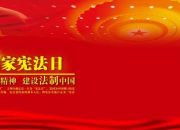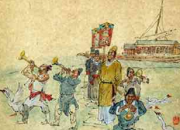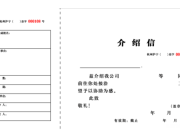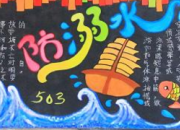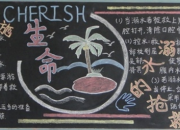天津市-学年高二上学期期中英语试卷
时间:2021-08-31天津市2019-2020学年高二上学期期中英语试卷
一、单项填空
—Could you please cut the price a little?
—Er … ______ you buy more than ten.
A.even ifB.so long asC.thoughD.as soon as
The lunch period will be _____ from 30 minutes to an hour from now on.
A.expandedB.extendedC.spreadD.added
What made them concerned was that the disease was spreading more ____ than expected.
A.obviouslyB.steadilyC.anxiouslyD.rapidly
---I prefer shutting myself in and listening to music all day on Sundays.
---That’s _______ I don’t agree. You should have a more active life.
A.howB.whenC.whereD.what
While you are traveling abroad, attention should be paid to _______ you _______.
A.preventing; from being finedB.prevent; from fining
C.prevent; from being finedD.preventing; from fining
Since the present situation is very complex, I think it will take me some time to _____ its reality.
A.come acrossB.figure outC.look throughD.put off
Unfortunately, when we dropped in, Mr Smith ______ for Indonesia to rescue the injured people there, so he could spare little time for a few words.
A.has just leftB.just leftC.had just leftD.was just leaving
The son asks his dad why the chameleon(变色龙) can ______ the color of its background.
A.take onB.take upC.take inD.take over
The country has sent up three manned spacecraft, the most recent ___ at the end of last March.
A.has been launchedB.being launchedC.having been launchedD.to be launched
- What about my career prospects? Is my work contract ___________?
- I think so. If we’re satisfied with you, you can become our permanent worker.
A.qualifiedB.distinctiveC.renewableD.promising
二、完形填空
Dear Laura,
I just heard you tell an old story of gift giving and unselfish love in your program. You doubted whether such unselfish love would happen in today’s world. Well, I’m here to give you____.
I wanted to do something very ____ for my fifteen-year-old son, who has always been the perfect child. He ____ all summer to earn enough money to buy a used motorcycle. Then, he spent hours and hours on it ____ it looked almost new. I was so ____ of him that I bought him the shiniest helmet (头盔) and a riding outfit (装备).
I could ____ wait for him to open up his gift. In fact, I barely slept the night before. Upon awakening, I went to the kitchen to ____ the coffee, tea, and morning goodies. In the living room was a beautiful keyboard with a ____: “To my wonderful mother, all my love, your son.”
I was so____. It had been a long-standing joke in our family that I wanted a piano so that I could____lessons. “Learn to play the piano, and I’ll get you one.” was my husband’s ____.
I stood there shocked, crying a river, asking myself how my son could ____ this expensive gift.
Of course, the ____ awoke, and my son was thrilled (激动的.) with my reaction. Many kisses were ____, and I immediately wanted him to ____ my gift.
As he saw the helmet and outfit, the look on his face was not ____ what I was expecting. Then I ____ that he had sold the motorcycle to get me the keyboard.
Of course I was the proudest mother ____ on that day, and my feet never hit the ground for a month.
So I wanted you to know, that kind of love still ____ and lives even in the ever-changing world of me, me, me!
I thought you’d love to ____ this story.
Yours,
Hilary
P.S. The next day, my husband and I bought him a new “used” already shiny motorcycle.
1.A.hopeB.adviceC.supportD.courage
2.A.politeB.similarC.specialD.private
3.A.playedB.studiedC.traveledD.worked
4.A.afterB.beforeC.unlessD.until
5.A.sureB.fondC.proudD.confident
6.A.perhapsB.reallyC.almostD.hardly
7.A.prepareB.cookC.setD.serve
8.A.noteB.noticeC.wordD.sign
9.A.disturbedB.confusedC.astonishedD.inspired
10.A.giveB.takeC.drawD.teach
11.A.reasonB.requestC.commentD.response
12.A.presentB.affordC.findD.order
13.A.neighborB.buildingC.roomD.house
14.A.exchangedB.experiencedC.expectedD.exhibited
15.A.tearB.openC.checkD.receive
16.A.purelyB.basicallyC.obviouslyD.exactly
17.A.realizedB.rememberedC.imaginedD.supposed
18.A.onlyB.stillC.everD.even
19.A.worksB.existsC.mattersD.counts
20.A.sendB.publishC.shareD.write
三、阅读理解
MEMORANDUM (备忘录)
To: All members of the sales department
From: Annette Derringer
Re: Year-end party
Date: November 26
-------------------------------------------------------------------------------------------------
This is just a quick note to let you all know the arrangements for next month’s year-end party. As you know, the party will be held at the Green Vale Country Club, which we have reserved between 7:30 p.m. and 10:00 p.m. on the evening of December 21st. I’ve received replies from almost all of you confirming attendance, but if you haven’t let me know yet, please do so in the next day or two. Tickets for all employees have been covered by the company.
The Green Vale manager has asked me to explain one or two things to those of you who have not been there before. Basically, there is sufficient parking space for only 100 vehicles, so they would like to ask those of you planning to drive, try to car-pool as much as possible. Also, the number of lockers available is small, so guests should try to keep belongings to a minimum.
Thanks in advance,
Annette
To: Annette Derringer aderringer@belway.com
From: Kyle Berwick
Date: Nov 28
Subject: Year-end party
Annette,
This is to let you know that I will be able to attend the year-end party at the Green Vale Country Club on the 21st although I don’t think I will be able to arrive before 8:30. I was wondering if it would also be possible to bring a couple of guests. I know it is a bit of a last minute request, but my brother and his wife are planning to visit us at that time, and I know they’d love to see the Green Vale. If it is not a problem, then can you let me know how much I should pay for their tickets? Also, assuming this is OK, I was planning to drive down in a single car, to reduce the need for parking and also to allow us to keep our belongings in the car.
I have a couple of days off before the party, but I’ll be in my office until the 17th, so could you get back to me before then? Thanks a lot,


